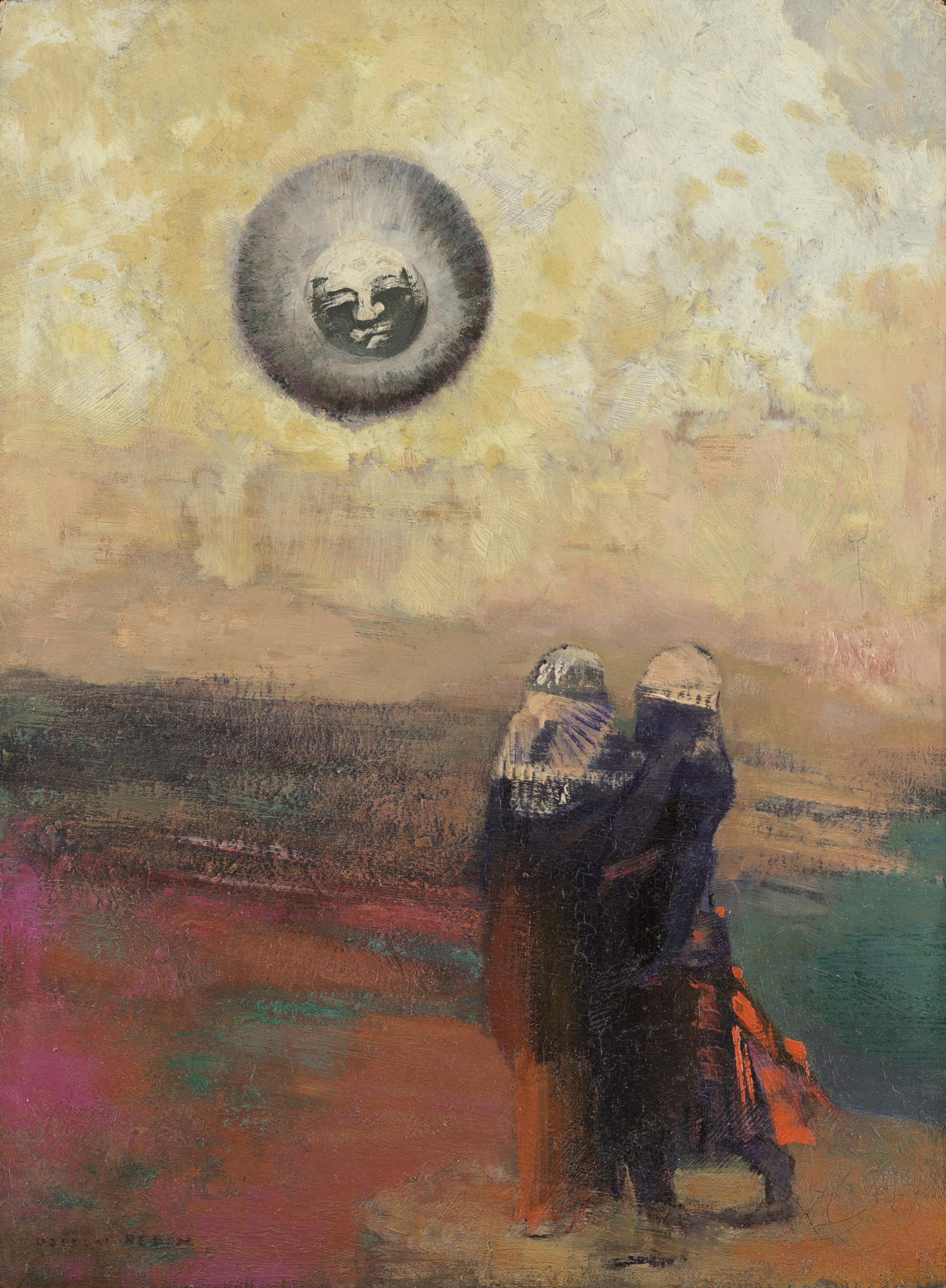A NEGLIGIBLE EXPERIMENT (2)
By:
December 8, 2023

J.D. Beresford’s pre-apocalyptic story “A Negligible Experiment,” which seems to have first appeared in his 1921 collection Signs & Wonders, is an allegory born of religious doubt. HiLoBooks is pleased to serialize it here for HILOBROW’s readers.
ALL INSTALLMENTS: 1 | 2 | 3 | 4.
Everyone treated the thing so lightly. Here and there alarmist paragraphs appeared, but they only displayed the hand of the sensation-monger. No one took the threat seriously. And yet the astronomers must know? They had had more than a week, now, in which to make their calculations.
And then the shadow fell with such suddenness that it was impossible to say how the certainty had come to us. Everyone knew. The astronomers confirmed one another without a dissentient. And there was nothing in the way. With a horrible unanimity the outer planets had left a clear space for the intruder, while the Earth, with that blundering indifference which is surely its chief characteristic, was stolidly marching straight into the path of destruction. Is there any esoteric significance in the fact that the Earth has a greater density than any other member of the solar system?
Everyone knew, but little was changed. We went on with our affairs; with little zest, no doubt — we could never forget the deepening shadow. But what else was there for us to do but go on? We could not instantly alter ourselves or our way of life. Religions blazed into a spasmodic fever as men and women sought refuge from the dreadful reality. Crimes of lust and greed increased for the same reason. But for the most part we continued in the old ways by sheer inertia, though there was a new and smaller moon visible to us in the night sky, a moon that waxed with infinite slowness towards the full, and grew larger night by night. We knew by then that the stranger was as big as Jupiter, and with a density little less than that of the Earth.
The first portents of disaster came when our own moon was approaching the new. The stranger’s mass had begun to affect the tides, and we were warned to evacuate all low lands, near the sea, upon the estuaries, and incidentally the river level in London. Four days before the highest tide the Thames flooded Farringdon Street, Westminster, and great districts on the south bank, and the retreating river laid bare the river-bed as far down as Greenwich.
The population of London had fled to the heights North and South before the great floods that devastated all the low lands of Essex, Kent, Surrey, and Middlesex. And with that rush for safety and the rapidly increasing portents of disaster the routine of civilisation was definitely broken. It seemed as if in the mass we were being gradually stripped of all our tediously-acquired virtues and vices, until but one instinct remained, the instinct for self-preservation. That, however, was only the effect produced by the panic movement of the crowd; when one came to individuals….
RADIUM AGE PROTO-SF: “Radium Age” is Josh Glenn’s name for the nascent sf genre’s c. 1900–1935 era, a period which saw the discovery of radioactivity, i.e., the revelation that matter itself is constantly in movement — a fitting metaphor for the first decades of the 20th century, during which old scientific, religious, political, and social certainties were shattered. More info here.
SERIALIZED BY HILOBOOKS: James Parker’s Cocky the Fox | Annalee Newitz’s “The Great Oxygen Race” | Matthew Battles’s “Imago” | & many more original and reissued novels and stories.
